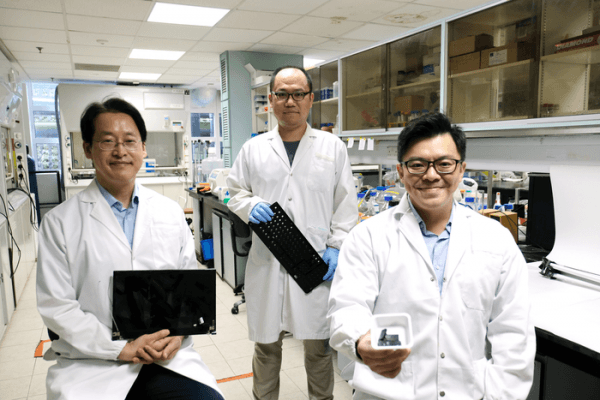Plastics found in electronic waste (e-waste) are rarely recycled due to their complex composition and hazardous additives, but scientists at NTU Singapore have developed a new use for them – by repurposing them as an alternative to the plastics used in laboratory cell culture containers, such as petri dishes.
The team at NTU Singapore–CEA Alliance for Research in Circular Economy (SCARCE) repurposed the e-waste plastics, subjecting them only to sterilisation, before being trialled in lab experiments.
The team found that over 95 per cent of the human stem cells seeded on plastics scavenged from discarded computer components remained healthy after a week, a result comparable to cells grown on conventional cell culture plates.
Read more at Nanyang Technological University
Image: Scientists at NTU Singapore have developed a new use for plastics found in e-waste, which is rarely recycled – by repurposing them as an alternative to the plastics used in laboratory cell culture containers, such as petri dishes. (Credit: NTU Singapore)


